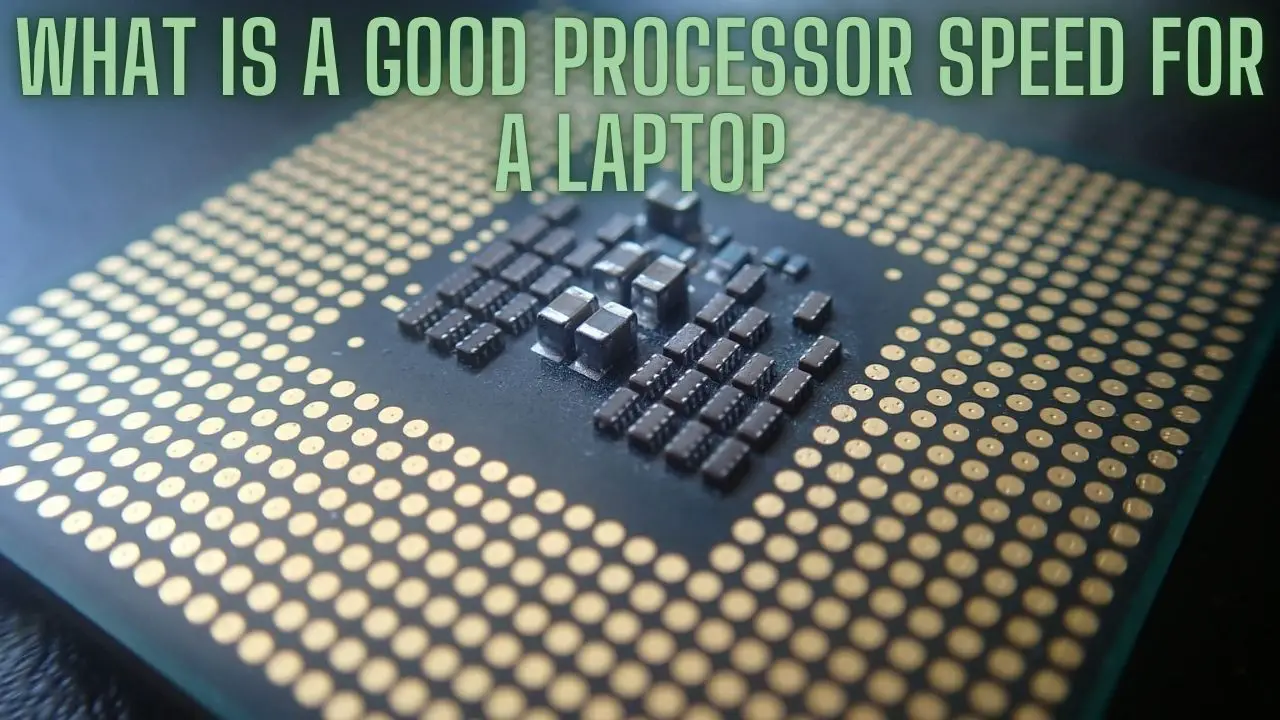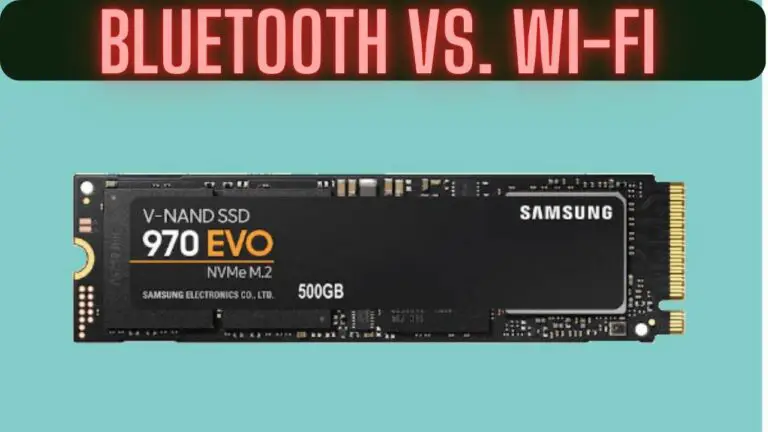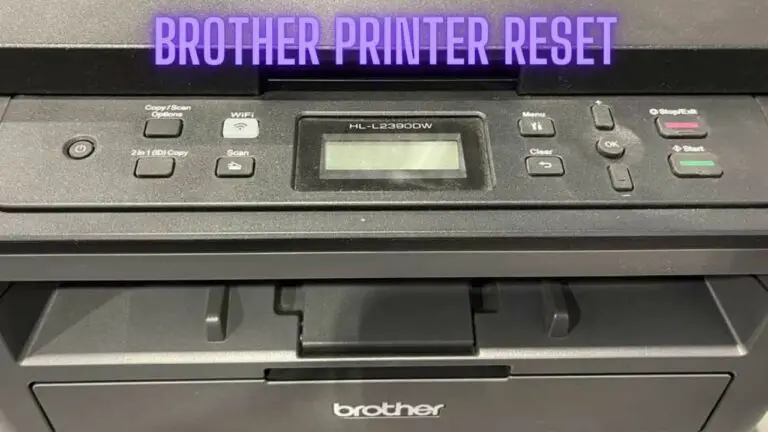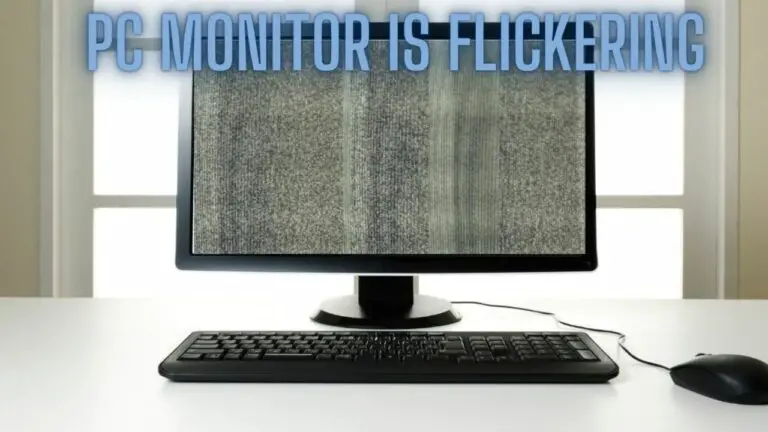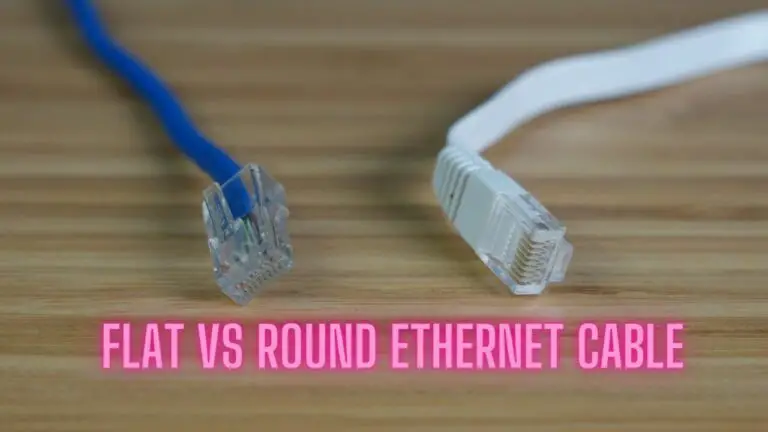What is a Good Processor Speed For a Laptop?
1. Introduction
When it comes to purchasing a laptop, one of the most critical considerations is the processor. The processor, often referred to as the “brain” of your computer, plays a significant role in determining how well your laptop can handle various tasks. But what exactly is a good processor speed for a laptop? To answer this question, we’ll delve into the world of laptop processors, exploring their role, how processor speed is measured, and what factors to consider when choosing the right processor for your needs.
1.1. The Importance of Processor Speed
The processor is the central component of any computer, and its speed directly influences how well a laptop can perform various tasks. In this section, we’ll explore why processor speed is such a critical factor when choosing a laptop.
1.2. Factors Affecting Processor Performance
Processor speed is not the only factor that determines performance. We’ll briefly discuss the various components and considerations that impact a laptop’s overall capabilities.
2. Understanding Processor Speed
2.1. What is Processor Speed?
Processor speed, often referred to as clock speed, is a measurement of how quickly a processor can execute instructions. It is expressed in hertz (Hz) and determines the number of calculations a processor can perform per second.
2.2. Measuring Processor Speed
Measuring processor speed is more complex than just looking at the clock speed. We’ll explore various aspects that influence a processor’s overall performance.
2.3. Clock Speed vs. Core Count
In addition to clock speed, the number of processor cores also plays a significant role in determining a laptop’s processing power. We’ll explain the difference between clock speed and core count.
3. Types of Laptop Processors
3.1. Intel Processors
Intel is a dominant player in the laptop processor market. We’ll delve into Intel’s processor lineup and what to expect from their various series.
3.2. AMD Processors
AMD offers robust competition to Intel with their Ryzen processors. We’ll explore AMD’s laptop processor options and their strengths.
3.3. ARM Processors
ARM processors are common in lightweight, power-efficient laptops and Chromebooks. We’ll discuss their advantages and limitations.
3.4. Custom Processors
Some laptops use custom-designed processors. We’ll look at the unique features and performance of these processors.
4. What Determines a Good Processor Speed?
4.1. Basic Tasks
For simple tasks like web browsing, word processing, and email, a modest processor speed is sufficient. We’ll define what “modest” means in this context.
4.2. Everyday Computing
Laptops used for everyday computing, including multimedia consumption and light multitasking, require a step up in processor speed. We’ll explore the ideal speed for this category.
4.3. Content Creation and Editing
Content creators and editors need laptops with faster processors to handle tasks like photo and video editing. We’ll discuss the appropriate processor speed for these activities.
4.4. Gaming
Gaming laptops have their own set of processor requirements. We’ll explain what a good processor speed means for gamers.
4.5. Professional Workstations
High-performance workstations for professionals like 3D artists, engineers, and architects demand top-of-the-line processors. We’ll discuss the requirements in this category.
5. Factors to Consider When Choosing a Laptop Processor
5.1. Budget
Your budget plays a significant role in determining the processor speed you can afford. We’ll provide guidance on finding the right balance between performance and cost.
5.2. Performance Needs
Your specific performance needs should guide your processor choice. We’ll help you assess what level of performance is suitable for your tasks.
5.3. Battery Life
Processor speed can impact battery life. We’ll discuss how to find a balance between performance and battery longevity.
5.4. Heat and Noise
Faster processors generate more heat and may lead to increased fan noise. We’ll explore how to manage these factors.
5.5. Future-Proofing
Considering the future is essential when choosing a laptop. We’ll provide tips on selecting a processor that will remain capable for years to come.
6. Balancing Processor Speed with Other Specs
6.1. RAM
The amount of RAM in your laptop is another vital component that affects performance. We’ll discuss how to balance RAM with processor speed.
6.2. Storage
The type and speed of storage can significantly impact overall laptop performance. We’ll explain how storage and processor speed are interconnected.
6.3. Graphics
For tasks like gaming and content creation, the graphics processing unit (GPU) is crucial. We’ll explore the relationship between the GPU and the processor.
6.4. Display
Your laptop’s display can influence the perceived performance. We’ll look at how display resolution and refresh rates are tied to processor speed.
7. Comparing Processor Generations
7.1. Performance Gains Over Generations
Processor technology evolves rapidly. We’ll discuss the performance gains you can expect from newer processor generations.
7.2. Value for Money
Value-conscious consumers often wonder if it’s worth investing in the latest processor generation. We’ll provide insights on balancing value and performance.
8. Overclocking and Its Impact on Processor Speed
Overclocking is a practice where users push their processors beyond their factory-set clock speeds. We’ll explore the pros and cons of overclocking.
9. Common Myths and Misconceptions About Processor Speed
There are several myths and misconceptions regarding processor speed. We’ll debunk some of the most common ones.
10. Processor Speed in Different Laptop Categories
10.1. Ultrabooks and Thin Laptops
Ultrabooks and thin laptops have unique processor requirements. We’ll discuss what’s suitable for these portable devices.
10.2. Gaming Laptops
Gaming laptops require high-performance processors. We’ll explore the ideal processor speed for gaming enthusiasts.
10.3. Business Laptops
Business laptops serve a different purpose, focusing on productivity. We’ll discuss the processor needs of business professionals.
10.4. Budget Laptops
Budget laptops have limitations, but they can still offer decent performance. We’ll explain what to expect from budget processors.
11. The Future of Processor Speed
11.1. Trends in Processor Development
The field of processor development is constantly evolving. We’ll highlight current trends and their implications for the future.
11.2. Impact of New Technologies
New technologies, such as AI and quantum computing, are set to reshape the computing landscape. We’ll explore how these advancements may affect processor speed.
12. FAQS
What is processor speed, and why is it important for a laptop?
Processor speed, often measured in gigahertz (GHz), determines how quickly a laptop can perform tasks. It’s crucial for overall performance, affecting everything from boot times to running applications efficiently.
How do I know if a processor speed is good enough for my needs?
Your choice depends on the tasks you intend to perform. Basic tasks like web browsing and word processing require less speed, while gaming or content creation may demand higher speeds.
What is the difference between Intel and AMD processors, and how does it affect processor speed?
Both Intel and AMD offer a range of processors with varying speeds. The choice between them largely depends on your specific needs and budget.
Can I upgrade the processor speed of my laptop?
In most cases, laptop processors are soldered onto the motherboard and cannot be upgraded. It’s essential to choose the right processor when purchasing a laptop.
Is a higher clock speed always better?
Not necessarily. A higher clock speed is advantageous for tasks that rely heavily on single-threaded performance, but it’s not the only factor. Multi-core processors can offer better performance for multitasking and multi-threaded applications.
How does the number of processor cores affect speed?
More processor cores can improve multitasking and parallel processing. They’re beneficial for tasks like video editing and 3D rendering. However, some applications may not utilize multiple cores efficiently.
Should I consider power efficiency when choosing a processor for a laptop?
Yes, power efficiency is important, especially for laptops. Processors that strike a balance between performance and energy consumption are ideal for longer battery life.
What is the impact of processor speed on gaming performance?
For gaming, a good processor speed is essential, but it’s not the only factor. Graphics processing units (GPUs) also play a crucial role in gaming performance.
Can a laptop with a good processor speed handle demanding professional tasks, like video editing or 3D modeling?
A laptop with a high-speed processor, adequate RAM, and a capable GPU can handle professional tasks effectively. However, workstation laptops may offer additional features optimized for such work.
Are older processor generations still viable for today’s tasks?
It depends on the specific tasks. Older processors may handle basic tasks and some productivity work, but they may struggle with demanding applications or modern gaming.
How do I balance processor speed with other laptop specifications, like RAM and storage?
Balancing processor speed with RAM, storage, and other components is crucial for a well-rounded laptop. It depends on your specific needs and budget.
Is overclocking a good way to boost processor speed, and is it safe?
Overclocking can increase processor speed but should be done cautiously. It may void warranties and could lead to overheating if not managed properly.
What is the impact of processor speed on laptop heat and noise?
Faster processors tend to generate more heat, which can lead to increased fan noise. Laptops with high-speed processors often have better cooling systems.
Is there an ideal processor speed for budget laptops?
Budget laptops can still offer decent performance. Look for processors that balance cost and performance, considering your intended use.
How do I stay updated on the latest processor developments and trends?
Keeping an eye on tech news, reviews, and manufacturer announcements is a great way to stay informed about the latest processor developments and trends.
What is the future of processor speed, and what can we expect from new technologies?
The future of processor speed includes ongoing advancements in performance and efficiency. New technologies, such as AI and quantum computing, may redefine what’s possible in the world of processors.
13. Conclusion
In the conclusion, we’ll summarize the key takeaways and provide some final advice on choosing the right processor speed for your laptop. We’ll also emphasize the dynamic nature of the tech industry and the need to stay informed about the latest developments in processor technology.

